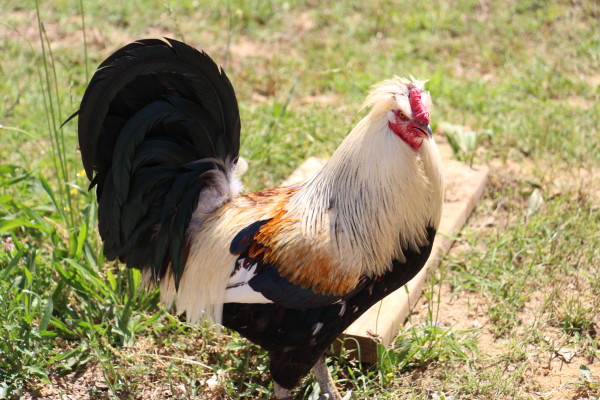 If you’re planning a Colonial Williamsburg vacation this summer, expect quite a few new kid-friendly programs in the Historic Area. In addition to bringing fresh-baked gingerbread cookies back to the Raleigh Tavern Bakery and opening an archaeological digging site for children—we’re also introducing more live animals to your 18th-century experience!
If you’re planning a Colonial Williamsburg vacation this summer, expect quite a few new kid-friendly programs in the Historic Area. In addition to bringing fresh-baked gingerbread cookies back to the Raleigh Tavern Bakery and opening an archaeological digging site for children—we’re also introducing more live animals to your 18th-century experience!
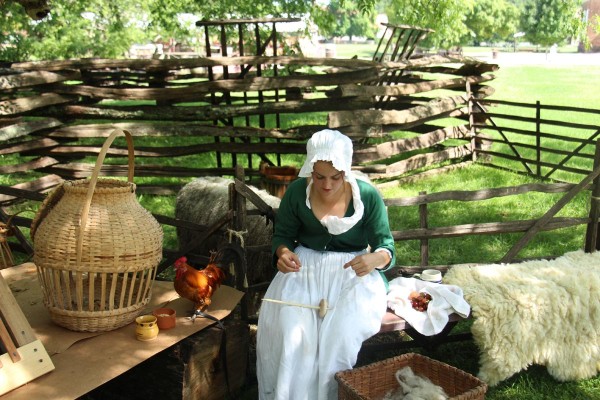 Soon, the Market House bell won’t be the only sound to signal the beginning of the work day in the Revolutionary City. Cries from our sheep, crows from our roosters, and even bellows from our cattle will also add to the bustling atmosphere of a busy colonial capital. Some of our Rare Breeds will make the trek from the stables and various pastures to a more central location at Market Square to interact with children of all ages. You’ll be able to meet the animals and ask questions about how the different breeds have survived the past 250 years. The corral is already set up on the other side of DoG Street (across from the Courthouse). If you’re facing the Magazine, it’s off to the right under the shade of the trees.
Soon, the Market House bell won’t be the only sound to signal the beginning of the work day in the Revolutionary City. Cries from our sheep, crows from our roosters, and even bellows from our cattle will also add to the bustling atmosphere of a busy colonial capital. Some of our Rare Breeds will make the trek from the stables and various pastures to a more central location at Market Square to interact with children of all ages. You’ll be able to meet the animals and ask questions about how the different breeds have survived the past 250 years. The corral is already set up on the other side of DoG Street (across from the Courthouse). If you’re facing the Magazine, it’s off to the right under the shade of the trees.
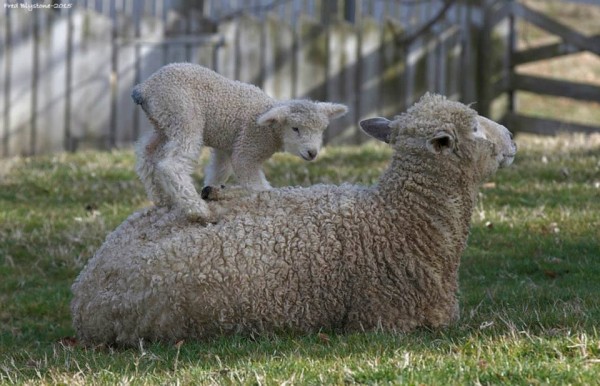 The program will run seven days a week throughout the summer and will showcase our Leicester Longwool Sheep (including our yearlings) as well as six breeds of poultry (rotated out depending on the day). There will also be quite a few surprise guests who may drop by! Don’t be surprised to see our heifers Juno and Pi out there some days. And we’re told our Ox Driver Lisa Carpenter will make some appearances with her teams. (Be sure to ask her about their new shoes!). Our actor-interpreters also plan to ride up periodically on horseback to interact with the kids and answer questions. Essentially, the outdoor exhibit will be a revolving door of fun and education!
The program will run seven days a week throughout the summer and will showcase our Leicester Longwool Sheep (including our yearlings) as well as six breeds of poultry (rotated out depending on the day). There will also be quite a few surprise guests who may drop by! Don’t be surprised to see our heifers Juno and Pi out there some days. And we’re told our Ox Driver Lisa Carpenter will make some appearances with her teams. (Be sure to ask her about their new shoes!). Our actor-interpreters also plan to ride up periodically on horseback to interact with the kids and answer questions. Essentially, the outdoor exhibit will be a revolving door of fun and education!
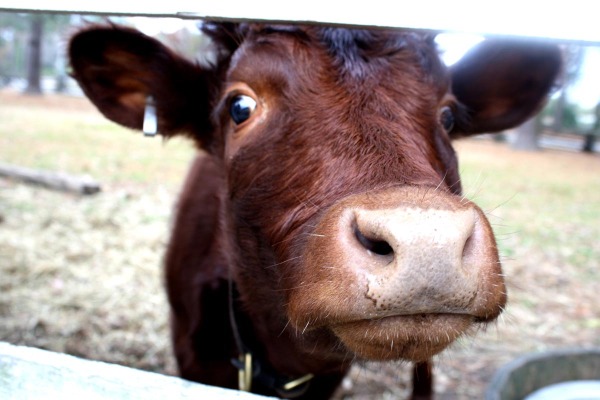 Elaine Shirley, manager of our Rare Breeds Program, says to expect a number of hands-on activities for the kids involving bones, hides, horns, and wool. It will be an opportunity for children to learn about 18th-century farm animals in a friendly, open setting.
Elaine Shirley, manager of our Rare Breeds Program, says to expect a number of hands-on activities for the kids involving bones, hides, horns, and wool. It will be an opportunity for children to learn about 18th-century farm animals in a friendly, open setting.
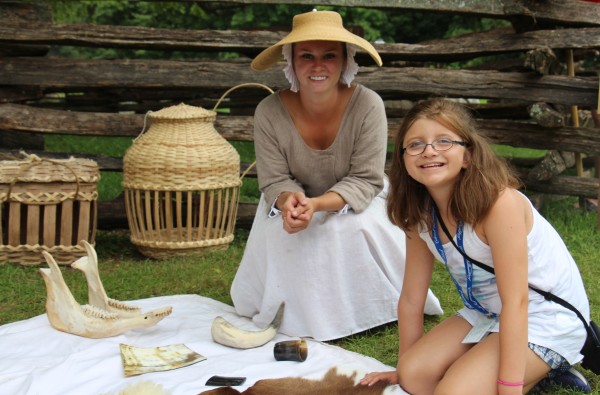 One very important note to keep in mind—there is NO FEEDING! This is the universal rule for all Colonial Williamsburg animals and an important one at that. Please remind your children that doing so can be dangerous and even deadly. There are many plants that may seem harmless but are actually poisonous to our furry friends. We assure you, each animal under our care receives a well-balanced diet (and even an occasional treat!).
One very important note to keep in mind—there is NO FEEDING! This is the universal rule for all Colonial Williamsburg animals and an important one at that. Please remind your children that doing so can be dangerous and even deadly. There are many plants that may seem harmless but are actually poisonous to our furry friends. We assure you, each animal under our care receives a well-balanced diet (and even an occasional treat!).
I mentioned these programs will take place during the week and on the weekend but I should also mention the times (in case you plan to arrive late in the day). For now, the animals are scheduled to go out around 10 in the morning and stay out until roughly 3:30 in the afternoon. That allows our staff time to clean up for the next day and also ensures the animals won’t be spooked by the cannon salutes, cheers, and Fifes and Drums music that accompanies our send-off to the troops during On to Yorktown and Victory! You may catch some of the animals out there this week but the full-time program isn’t slated to begin until June 22 and will always be “weather permitting.”
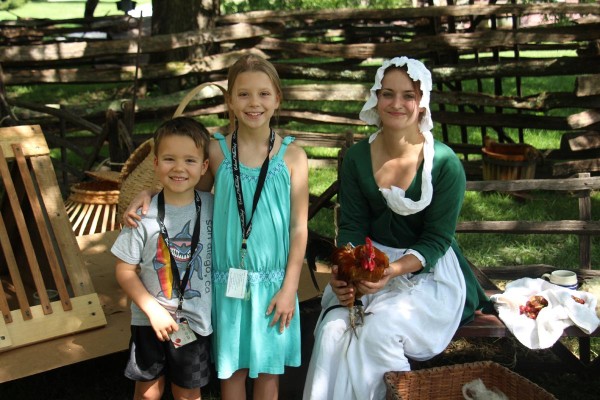 This project, like so many we’ve implemented this year, was a combined effort of talented folks across the Foundation including members of the Coach & Livestock Department, our Carpenters (who constructed the wooden chicken houses), our Tinsmiths and Gunsmiths (who helped with the powder horns), our Historic Foodways (who gathered bones), our Weavers and Dyers, and our archeologists!
This project, like so many we’ve implemented this year, was a combined effort of talented folks across the Foundation including members of the Coach & Livestock Department, our Carpenters (who constructed the wooden chicken houses), our Tinsmiths and Gunsmiths (who helped with the powder horns), our Historic Foodways (who gathered bones), our Weavers and Dyers, and our archeologists!

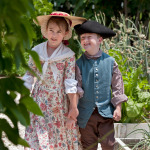

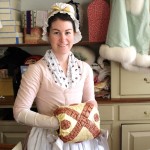
Can anyone identify the specific kind of rare breed rooster this is and what is his name that I photographed in CW?